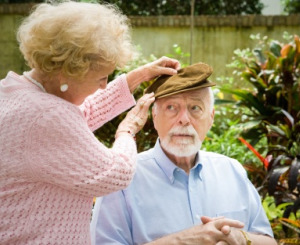Household Poisons
Demented Seniors At Risk From Household Poisons
NEW YORK (Reuters Health) – One of the most important steps in childproofing a home is keeping dangerous household chemicals, such as cleaning agents, out of the reach of children. A report published recently in the journal Chest points out that these chemicals are also dangerous to elderly people with dementia, who may drink them by mistake.The report, from Drs. James A. Walker and Gary P. Zaloga of Washington Hospital Center in Washington, DC, includes details of a case of an 88-year-old woman with Alzheimer’s disease who drank 10 ounces of a pine oil-based cleaning solution.Over 10,000 such cases, in which people drank pine oil-based cleaning products, are reported each year in the US, making these products second only to gasoline as the most common type of substance involved in accidental toxic poisoning, the authors note. The researchers also point out that since many incidents go unreported, the actual number of such cases is probably much higher.“We’ve done a great job on preventing unintentional childhood poisoning… we think it’s one of the great success stories of public health. But the issue of older people unintentionally swallowing substances is much more complicated,” said US Product Safety Commission spokesman Ken Giles, when asked to comment about the problem.The Alzheimer’s patient in the report was being cared for at home by her grandson. Mentally disoriented but physically functional, she had been left alone in her bathroom for approximately 5 minutes — during which time she swallowed the cleaning solution. She was quickly brought to an emergency department, put on a mechanical ventilator and treated for poisoning, but subsequently died of pneumonia and multiple organ failure.In an interview with Reuters Health, Giles said that such accidents in the general population –and particularly in children under the age of 5 — have greatly diminished in the US since the passage of the Poison Prevention Packaging Act in 1970. However, he emphasized that in the 28 years since the first child-resistant packaging was designed for aspirin in 1972, the focus has been on the protection of children, not the elderly, which involves a different set of concerns and strategies.“Children under 5 put things in their mouth because that’s their approach to learning about their world,” he said. “But with older people you begin to have a lot of other factors… not reading the label, not turning the light on at night, mixing substances together, so that you get a bad synergistic effect — lots of issues that are not there with children.”However, the investigators point out that both the demented elderly and children have in common the ability to move about their environment while doing so with limited cognitive faculties, leaving both groups vulnerable to the dangers of toxic ingestion.Walker and Zaloga also note that less than 0.1% of reported cases of toxin ingestion have fatal outcomes. Elderly patients account for about 17% of these fatal cases, and the risk of dying from ingesting a toxin rises with age. Because of physical changes associated with aging, the elderly are likely to be exposed to toxins for longer periods after ingestion than children.The researchers advise medical practitioners to become familiar with the treatment of pine oil intoxication. Quick response to signs of ingestion — which include the aroma of pine on the breath of the patient, blurred vision, headache, sore throat, vomiting, and abdominal pain and respiratory failure — is important to prevent serious and potentially fatal complications. SOURCE: Chest 1999;116:1822-1826.
Household Poisons
Dr. Brian M. Moriarty has a B.S. from Oglethorpe University and a D.C. from Palmer College of Chiropractic Florida. Loving Chiorpractic of Stuart is located at 630 SE Monterey Road, Stuart, FL. Phone: 772-219-3313.

